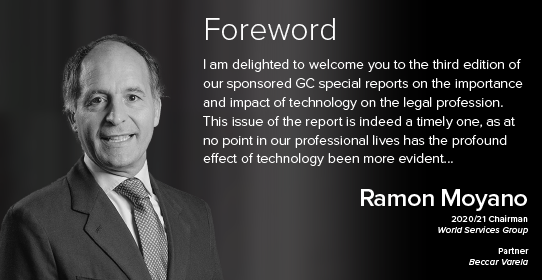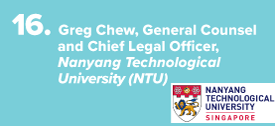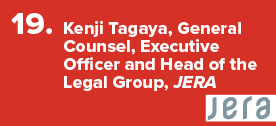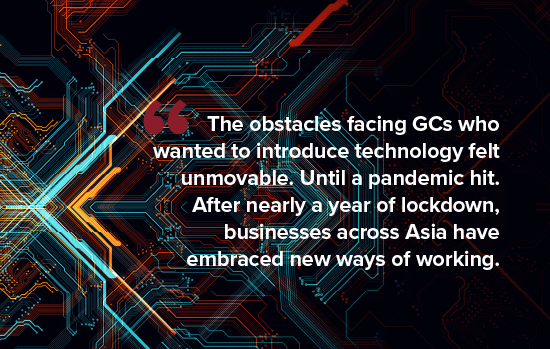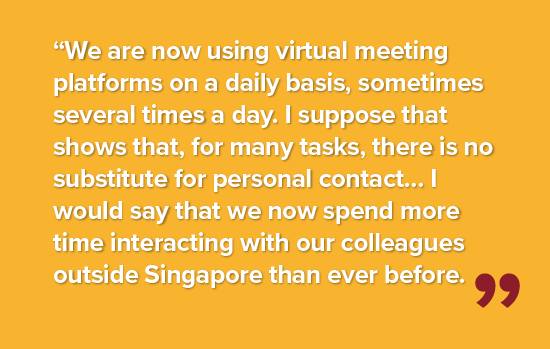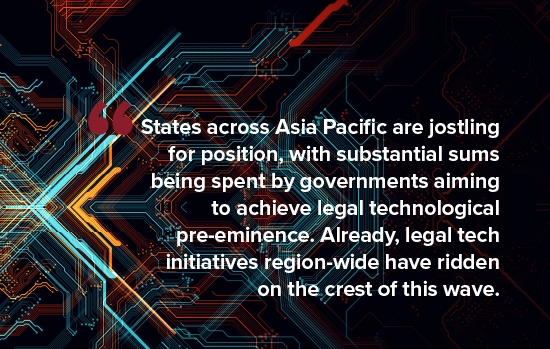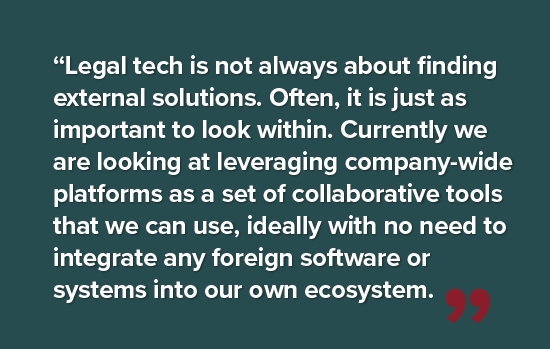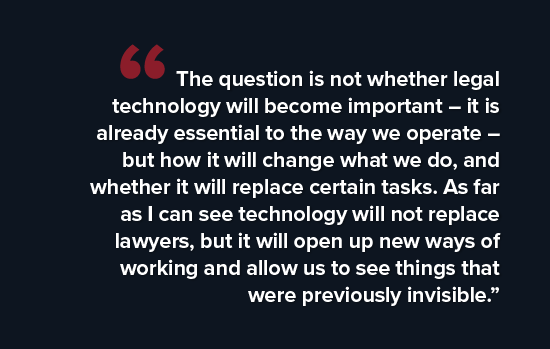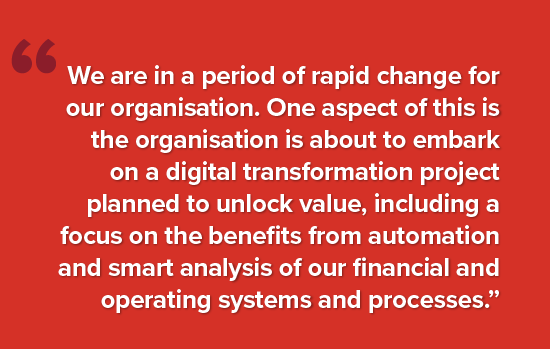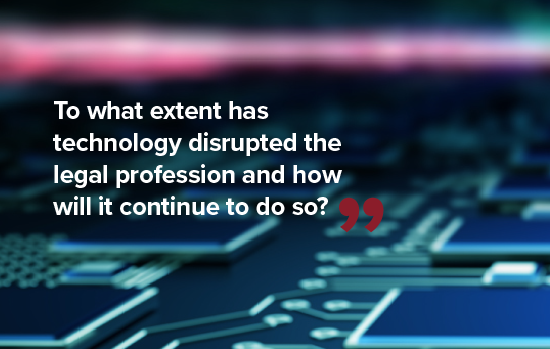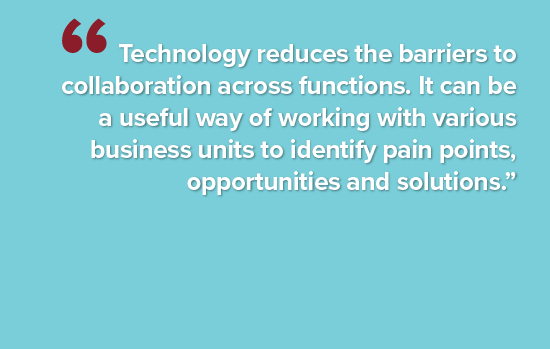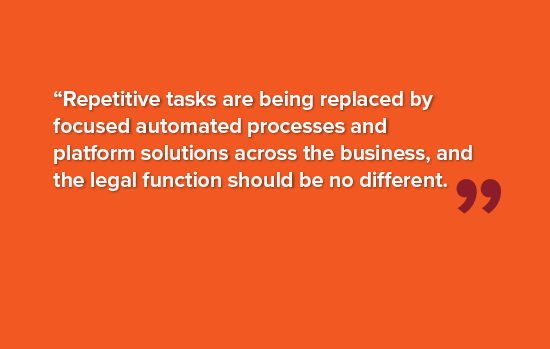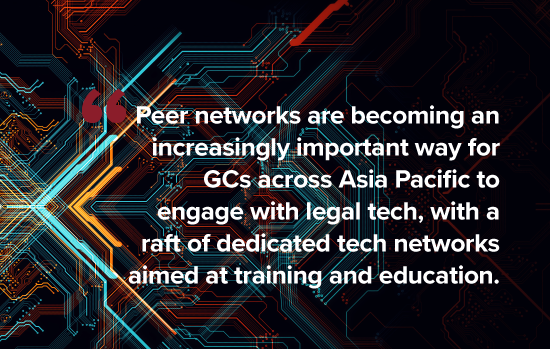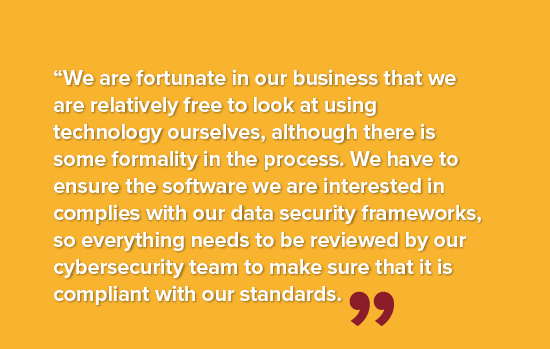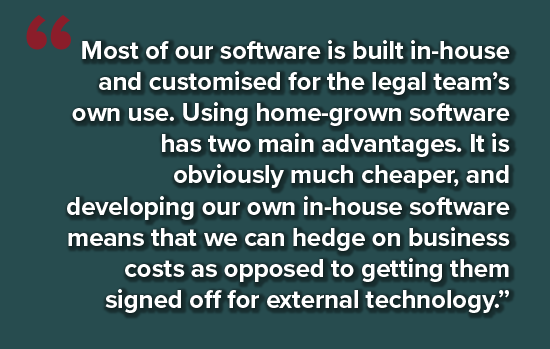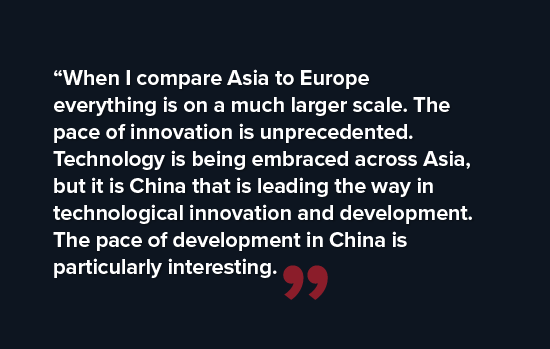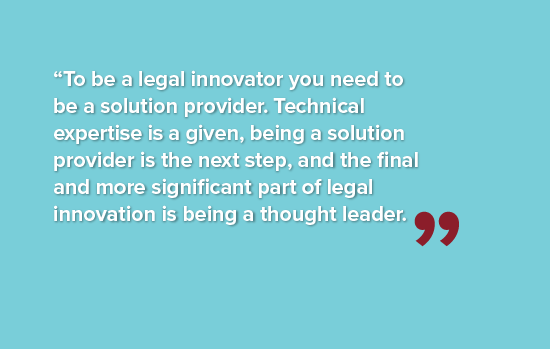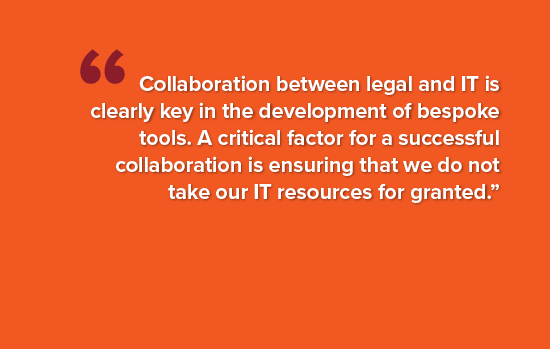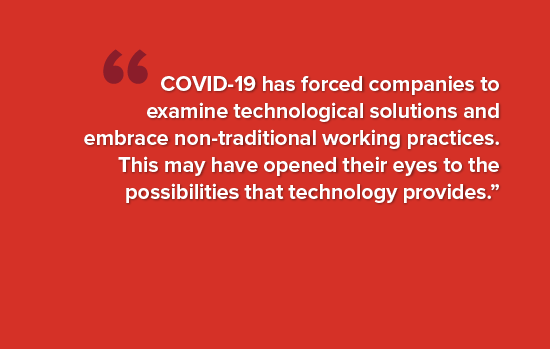GC: In-House Technology - Asia Pacific Edition
World Services Group (WSG), in partnership with GC Magazine, recently published a new special report that provides survey results and insights on trending in-house legal sector technologies, and how Asia Pacific general counsel members are utilizing these tools and solutions during these ever changing digital times. More >

1. Editor's Letter
With the goal of understanding how much lawyers have and continue to adapt to various technologies in these challenging and ever-changing times within the region, these survey results and perspectives from industry leaders show that regardless of country-specific traits that are restricting or encouraging the use of technology, GCs conducting business globally and locally are facing the same issues when it comes to technology. More >

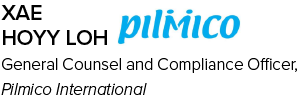
The challenge of managing a legal function remotely has forced GCs to think creatively. Xae Hoyy Loh, General Counsel and Compliance Officer of agribusiness giant Pilmico International shares his insights. More >
3. Pacific Shift
When it comes to investment in different types of legal tech, it is clear governments are investing. However, when it comes to the type of tech and provider for, this can vary whether outsourced to an international, regional or domestic company and seems in some cases, there is a combination. In addition, GCs own companies are also investing in creating new tech solutions in-house vs hiring external providers. More >


For nearly two decades Chek Tsang Foo has supported information technology companies in their push to develop new tools for business. Now senior vice president and general counsel at NTT, he reflects on legal tech's step into the mainstream. More >


Engineering consultancy WSP relies on technology to keep ahead of the industry. In an office full of tech-savvy engineers, lawyers can struggle to keep up. Chee Hoong Pang, Head of Legal for WSP's Asia Pacific operations tells us how the team has adapted to 'eat, breathe, sleep' technology. More >
6. Results from our Survey: Life During Lockdown
When it comes to what has been learned since March 2020, survey results showed for many legal teams, the pandemic was an unexpected experiment in working remotely. While over half of legal teams (59%) had a prescribed remote-working policy in place before the pandemic hit, and almost all (95%) felt such a policy was necessary, this was scant preparation for having the entire team work remotely for weeks at a time. More >


As one of Australia's longest serving GCs, there's not much Marcus Clayton hasn't thought of when it comes to running a legal function. He gives his thoughts on how to embed tech within a successful team. More >
8. Results from our Survey: Risk Aversion
When asked if technology has been a disruptor in the legal profession in the last five years, survey results showed that only 7% answered to a great extent, with 42% stating to a small to a small extent, 38% to moderate extent and 13% not at all. Along with this, GCs also provided details on what tech is currently being used for within their departments and predictions for the future. More >


Since it was formed in 2017, business-to-business IT services titan DXC Technology has been a pioneer in digital innovation. Head of legal for greater China, Ivy Wu outlines what this commitment to innovation means for the legal team. More >


When Carl Watson joined leading global design and engineering consultancy Arcadis in 2016, his first task was to set up a new legal and compliance function for its Asia Pacific operations. Having only recently made his move to Hong Kong, the newly installed GC knew he needed to tread lightly. GC hears how technology helped him overcome the odds. More >
11. The Social Network
Networking can be essential for anyone with an eye on corporate leadership but finding the time to do so was sometimes the last thing on a busy lawyer's mind. As times change in the region, networks are becoming a targets and increasingly important way for GCs to engage with legal tech, increase skill sets and form key relationships not only within the region but across borders globally. More >


GC of one of the region's largest conglomerates and head of the Australia chapter of CLOC, Sheldon Renkema has had plenty of opportunity to reflect on changes facing the in-house role. More >


The legal team of McDonald's Singapore faces a balancing act. On the one hand as a food retailer it needs to keep internal spend particularly low. On the other, it is keen to adopt technology to improve the team's output and efficiency. Faz Hussen explains that adopting a DIY approach has helped to square this circle. More >


Before making the move to Beijing four years ago, Per Hoffman held roles in Europe, Africa, and the Middle East. He reflects on the pace of change in his new home. More >
15. Results from our Survey: Zero-Sum Gain
Legal tech is becoming big business in the Asia Pacific region and it is no doubt that GCs would like to see law firms doing more to help them make sense of the market. More than half of respondents to our survey at 62% said their external firms were using technology to deliver legal services, but under a quarter (23%) said their firms had offered to share information on how technology might benefit their legal team's operations. More >

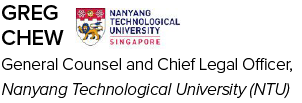
As general counsel to one of Asia's leading universities, Greg Chew has been close to some of the region's pioneering tech projects. But operating within a public institution means getting creative with technology. More >


Even technophobes can harness technology. Janette Loh talks us through the various steps of her ambitious digital transformation project. More >
18. Results from our Survey: Tech Support
A tech-savvy company does not necessarily have a tech-savvy legal team but, a supportive environment is at least a start. Survey results showed that 81% of respondents said their companies were supportive of the use of technology in the legal function. However, at the same time, 67% thought their companies were more supportive than their rivals. More >


Kenji Tagaya reflects on the challenges of breaking from tradition within a Japanese corporate environment. More >


